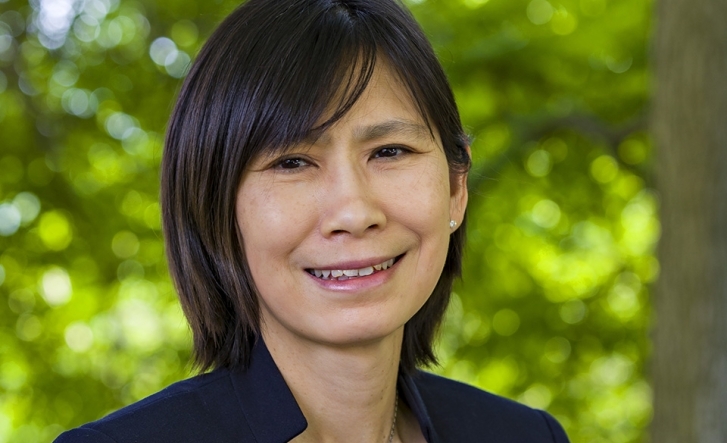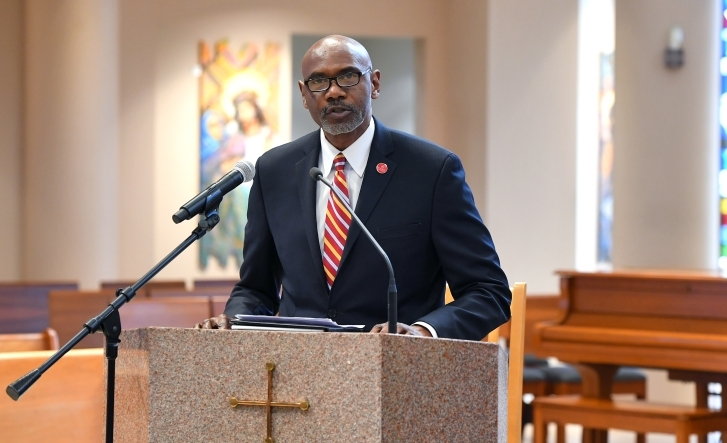William Murphy, J.D.
Assistant Professor William Murphy, J.D., from the Division of Criminal Justice, Legal Studies, and Homeland Security, was recognized as a finalist for the Jackson Lewis Employment Law Award by the Academy of Legal Studies in Business at the organization’s annual conference in Portland, Oregon this past August. Prof. Murphy’s paper, Distinguishing Diversity from Inclusion: Legal Necessity or Common Sense Conclusion?, explores the often misguided motivations behind many organizations’ implementation of diversity and inclusion programs and their documented failure to achieve a diverse workforce.

Assistant Professor William Murphy, J.D., from the Division of Criminal Justice, Legal Studies, and Homeland Security, was recognized as a finalist for the Jackson Lewis Employment Law Award by the Academy of Legal Studies in Business at the organization’s annual conference in Portland, Oregon this past August. Prof. Murphy’s paper, Distinguishing Diversity from Inclusion: Legal Necessity or Common Sense Conclusion?, explores the often misguided motivations behind many organizations’ implementation of diversity and inclusion programs and their documented failure to achieve a diverse workforce.
“Misconceptions and misapplications pervade the widespread and growing trend of employers adopting diversity and inclusion strategies. Some organizations progressively seek EEOC compliance and avoidance of Title VII liability, other organizations opportunistically pursue the business benefits diversity offers, and some organizations still act out of misplaced fear due to their difficulty distinguishing between voluntary and required affirmative action altogether. In doing so, these employers often swing the pendulum of diversity too far in a manner disappointing the expectations of majority and minority employees alike, as well as the organization itself. What results therefrom, are not legal challenges but instead business challenges and unrealized potential.”
His research concludes that these undesirable outcomes are often caused by a failure to separate, define, and treat diversity and inclusion as individual notions. Prof. Murphy proposes distinct definitions for each concept, argues for the adoption of inclusive policies as a means of achieving a diverse workforce, and identifies effective inclusion practices.
“This ineffectiveness of modern diversity and inclusion initiatives stems from employers’ general misunderstanding of the concept altogether. Specifically, employers tend to treat diversity and inclusion as one concept instead of as two separate and distinct concepts. This frequently results in misguided, control-oriented programs and policies proved to diminish diversity and its benefits. When employers successfully deduce that diversity is the destination and inclusion is the vehicle, what results instead is an open, autonomous and collaborative organizational culture founded on the pride of self-responsibility. Only in this harmonious and empowering environment do maximized potential, enhanced productivity, unity, and equal employment opportunity become a reality.”
The Academy of Legal Studies in Business advances legal studies in business education and is the professional home for legal studies researchers and educators, fostering collegial relationships and productive collaboration with researchers, educators, and organizations throughout the world. The Academy promotes knowledge of law, ethical behaviors, and an appreciation for justice, in research and teaching, so that students better understand the world in which businesses operate and so that business leaders may better understand their relationship with society and the impact of their decisions. Sponsored by Jackson Lewis, P.C., a global leader in providing premiere workplace law representation, the Academy of Legal Studies in Business Jackson Lewis Employment Law Award recognizes outstanding scholarship in the area of labor and employment law relating to business management.



